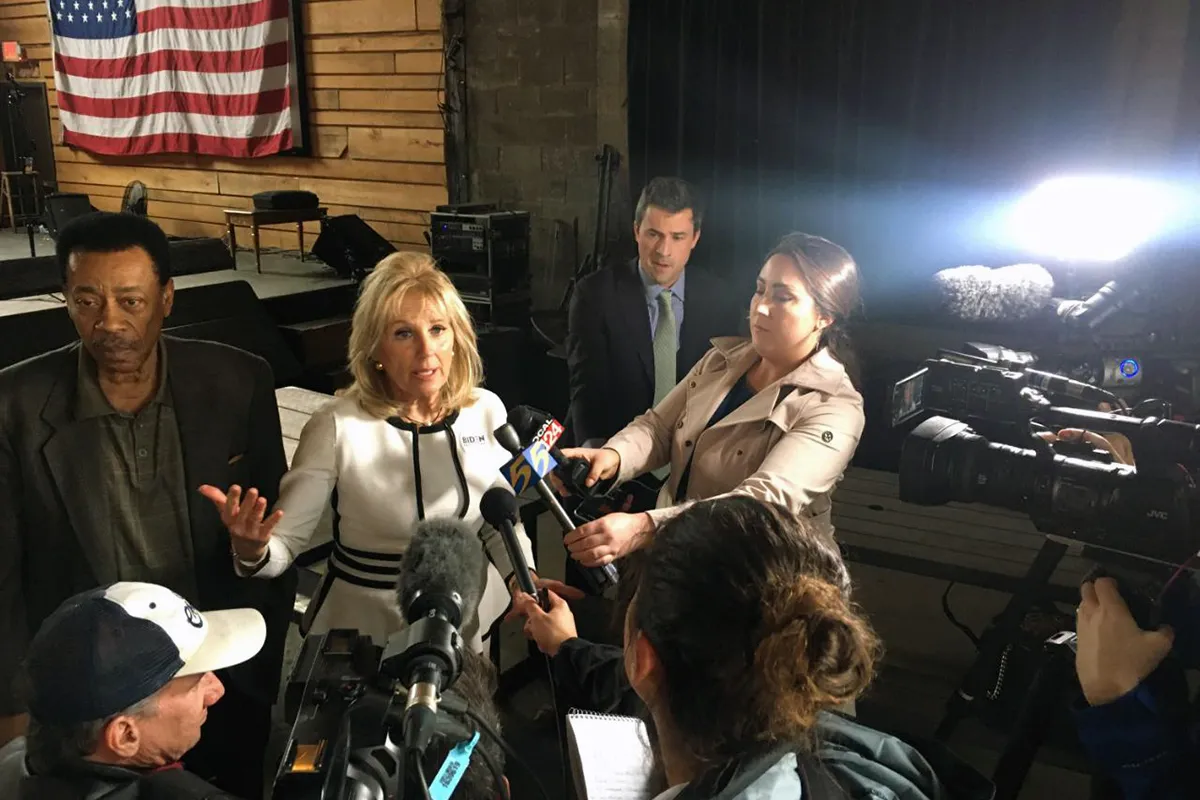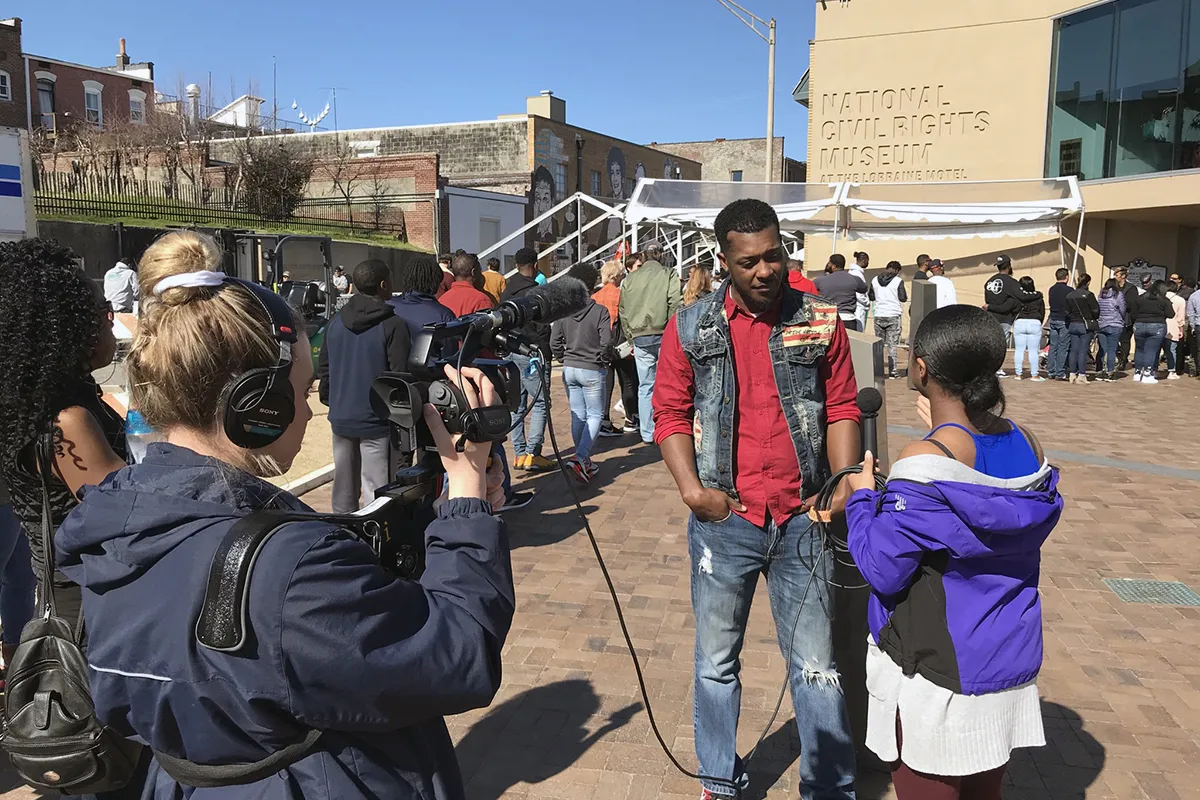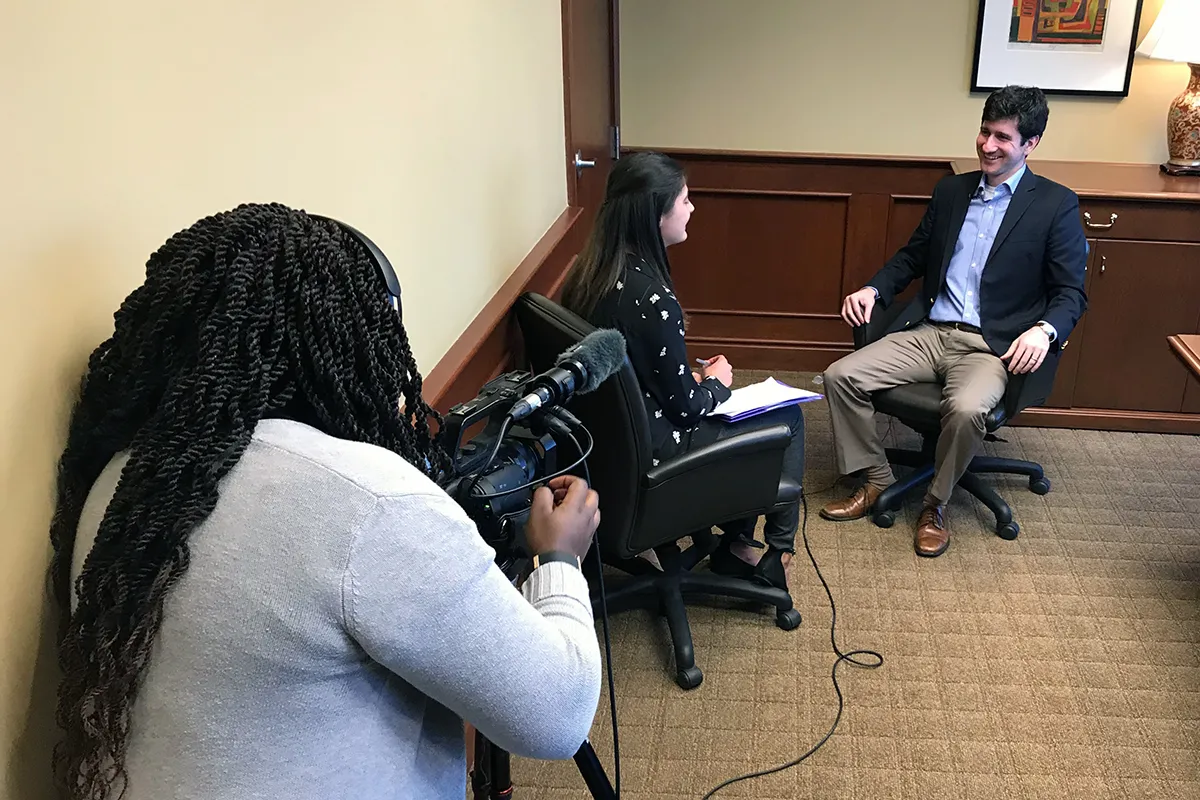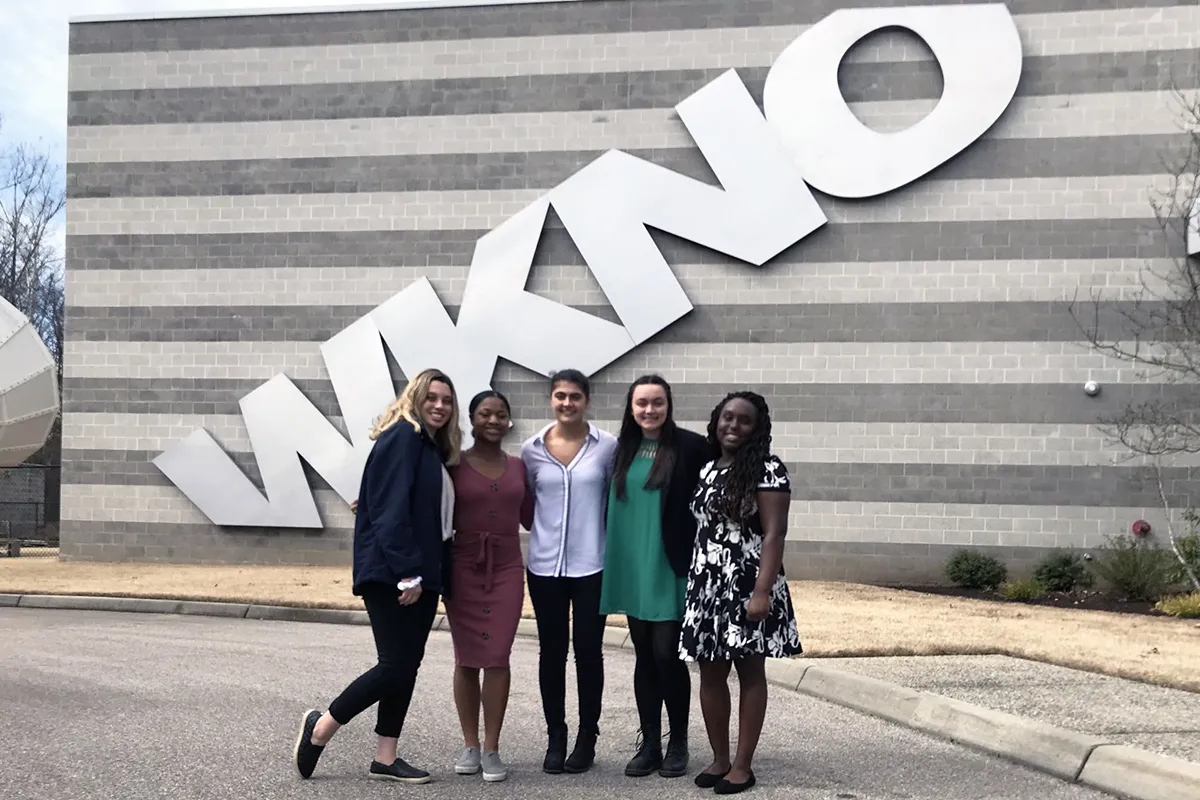It’s not the norm to see student journalists working shoulder-to-shoulder with professional journalists at major media outlets on the campaign trail. But that’s exactly what Ithaca College students accomplished this spring, traveling to report with CNN for the Iowa Caucus and New Hampshire primaries, and with NPR affiliate WKNO-FM in Memphis for Super Tuesday.
“For a college student to have the skillset, the capabilities, to be able to help produce industry-level, quality content — that’s amazing,” says James Rada, associate professor and chair of the journalism department, who selected the students for each internship.



